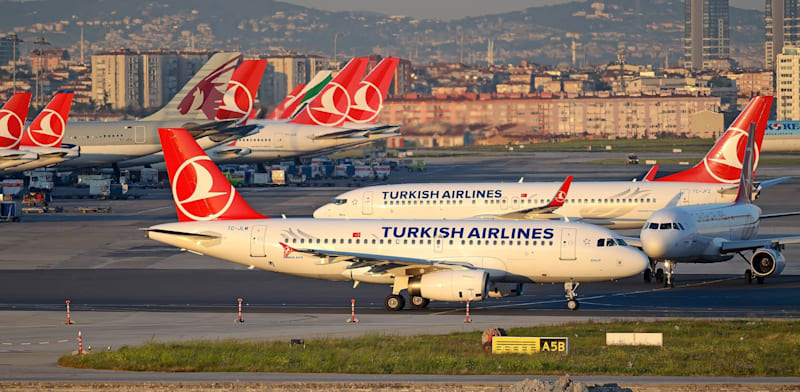
Turkish Airlines and Turkish low-cost carrier Pegasus have decided to forego their take-off and landing slots in Israel, thereby losing a precious resource acquired assiduously over the years. As far as Turkish Airlines is concerned, the price will be the loss of convenient flight times, which will enable its competitors to consolidate their presence and maximize profits on daily flights on routes to and from Israel.
The practice in the aviation industry is that an airline that frequently uses a slot that it has received can keep it, but if it fails to exploit it, the slot is liable to be assigned to another airline. The Turkish companies were supposed to decide last month whether to keep their slots in Israel, but because of the security uncertainty that still prevails in the region, they were given more time to decide. Their decision not to maintain their slots will make it difficult for them to return to operating in Israel later on.
Turkish Airlines is 49% owned by a state investment fund, but it operates as a profit-making business entity in every respect. Nevertheless, as a company subject to influence by the Turkish government, its decisions are not exclusively economic, but are also political.
Until the Swords of Iron war, Turkish Airlines was one of the foremost airlines operating at Tel Aviv’s Ben Gurion Airport. In 2019, before the Covid pandemic, it was ranked fourth for its activity at the airport, with a market share of 4.87%. It maintained its standing in 2023, even though it suspended operations at Ben Gurion for three months when the war broke out in October that year. Pegasus was ranked twelfth at that time.
According to industry sources, the Tel Aviv – Istanbul route was one of Turkish Airlines’ most profitable routes, thanks to high demand for connecting flights from Istanbul to destinations in Europe, North America and Asia, while operating costs were low. In fact, flights to and from Israel are not highly important for tourism in Turkey itself, where the tourist industry is growing without travelers from Israel, but they did significantly strengthen Turkish Airlines’ network of international flights.
The absence of Turkish Airlines is keenly felt at Ben Gurion Airport. Until the outbreak of war, it regularly operated more than ten daily flights on the Tel Aviv – Istanbul route, with as many as sixteen flights daily in peak periods, and in July-August 2023 more than 5% of the passengers that passed through the airport flew with it. The non-return of the Turkish carriers will enable Israeli and foreign airlines to take over their slots.
Published by Globes, Israel business news – en.globes.co.il – on April 28, 2025.
© Copyright of Globes Publisher Itonut (1983) Ltd., 2025.







